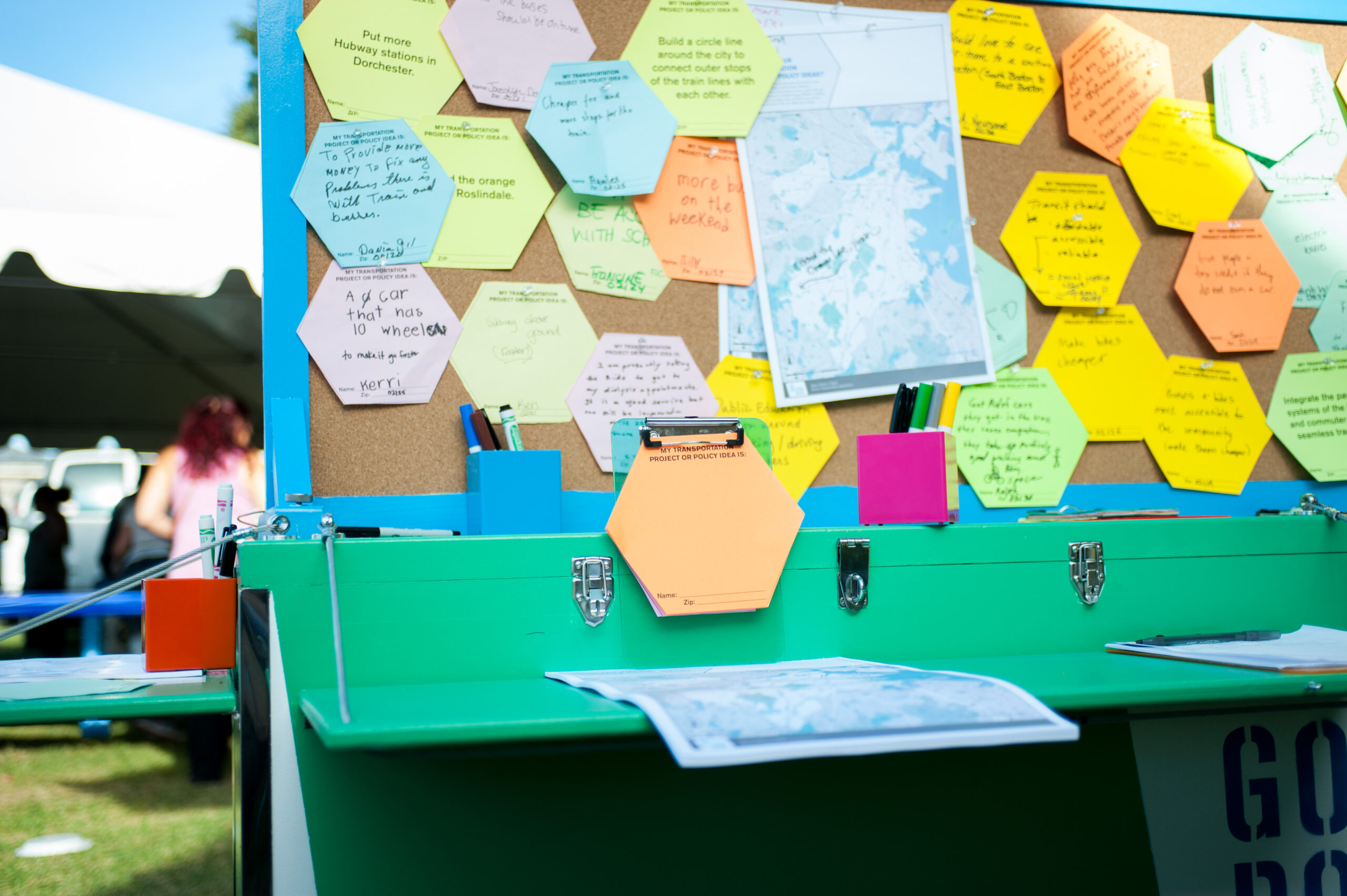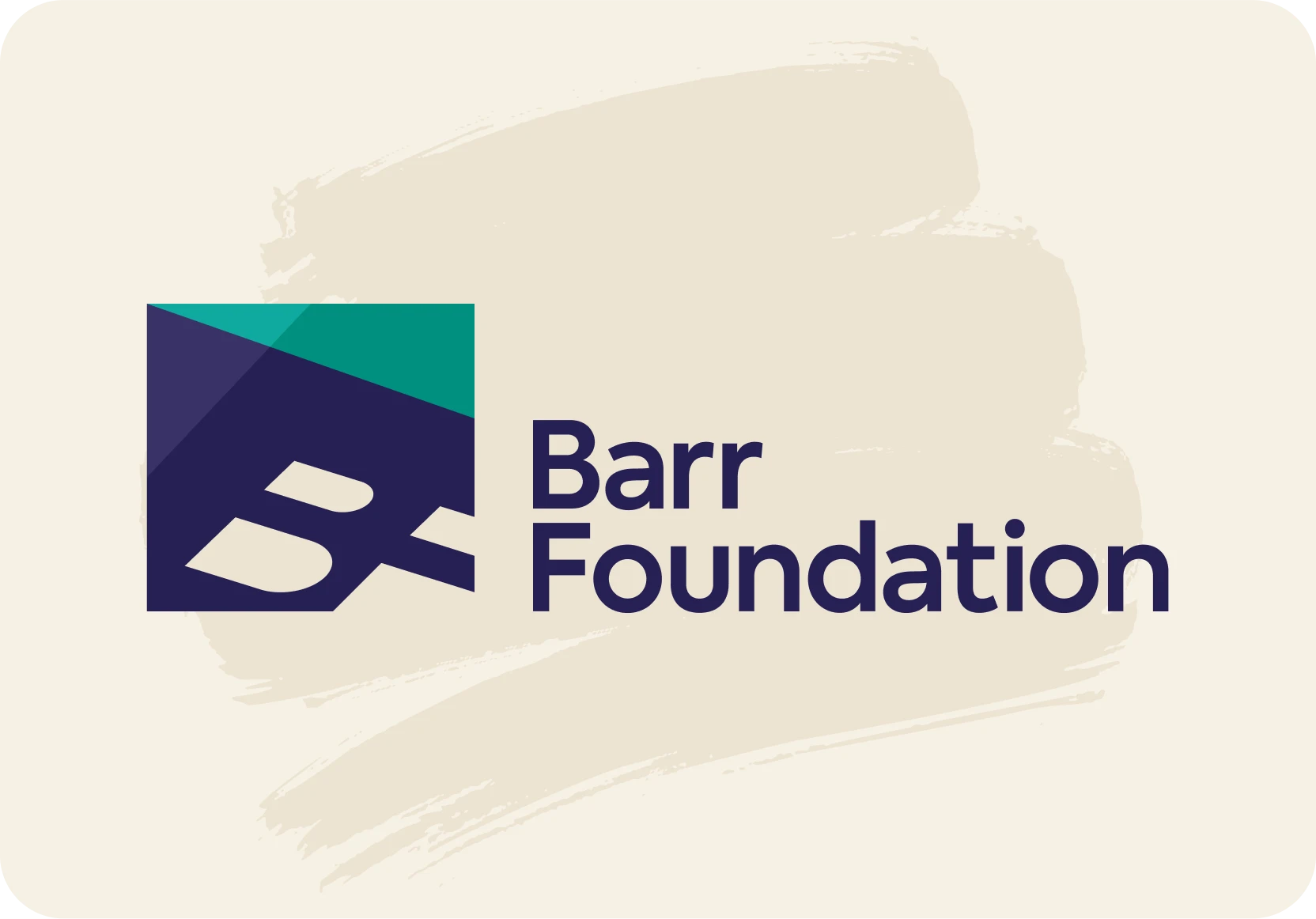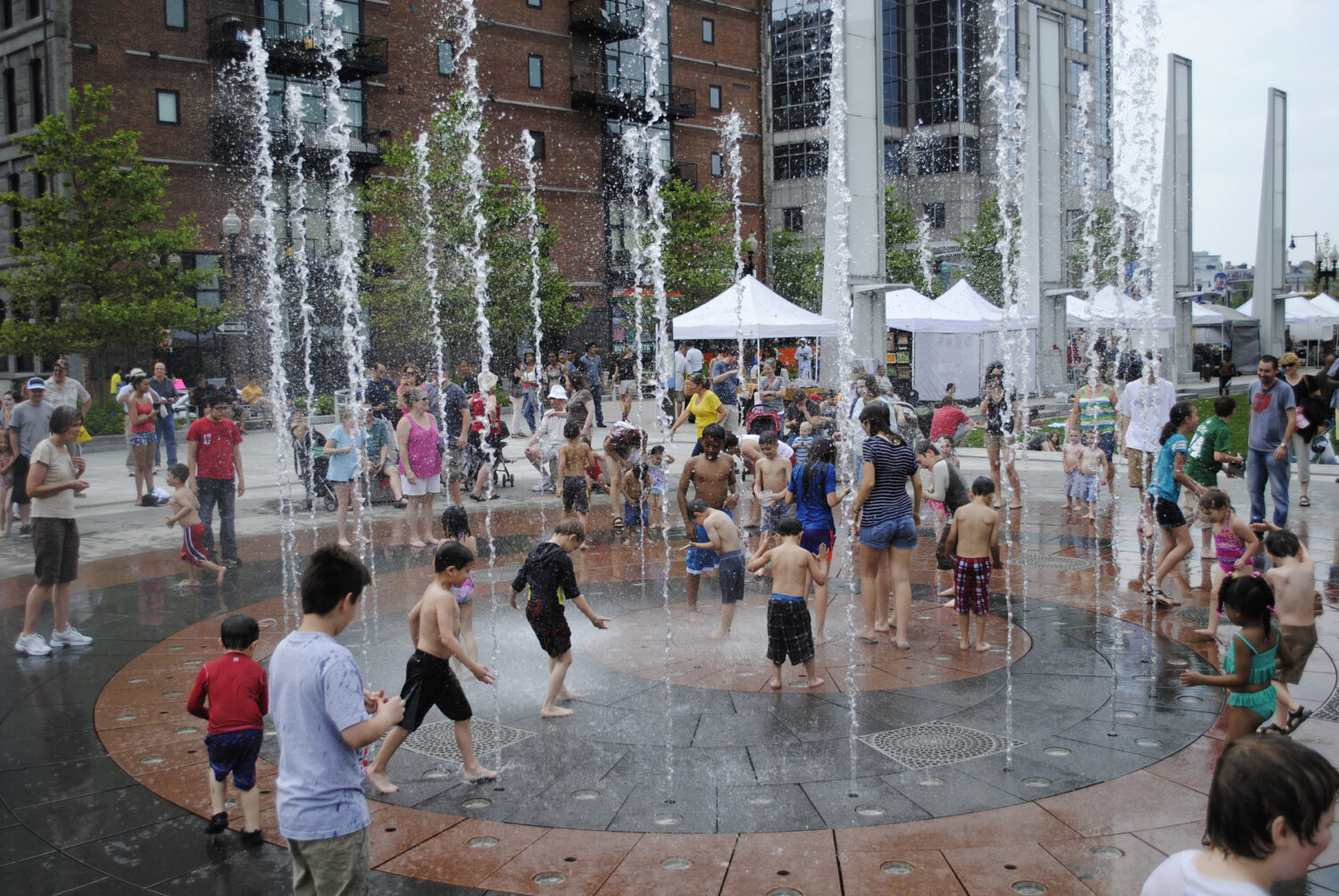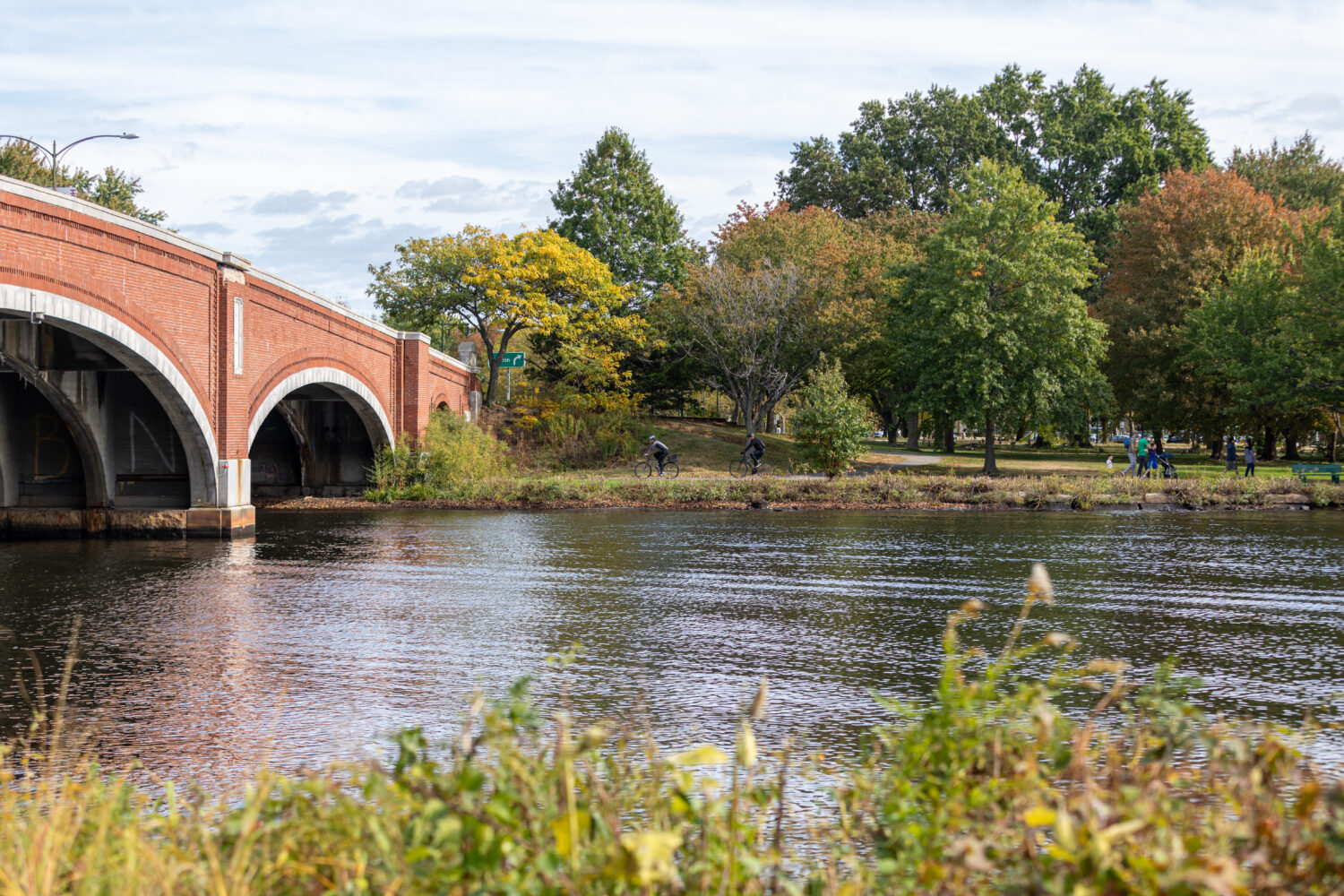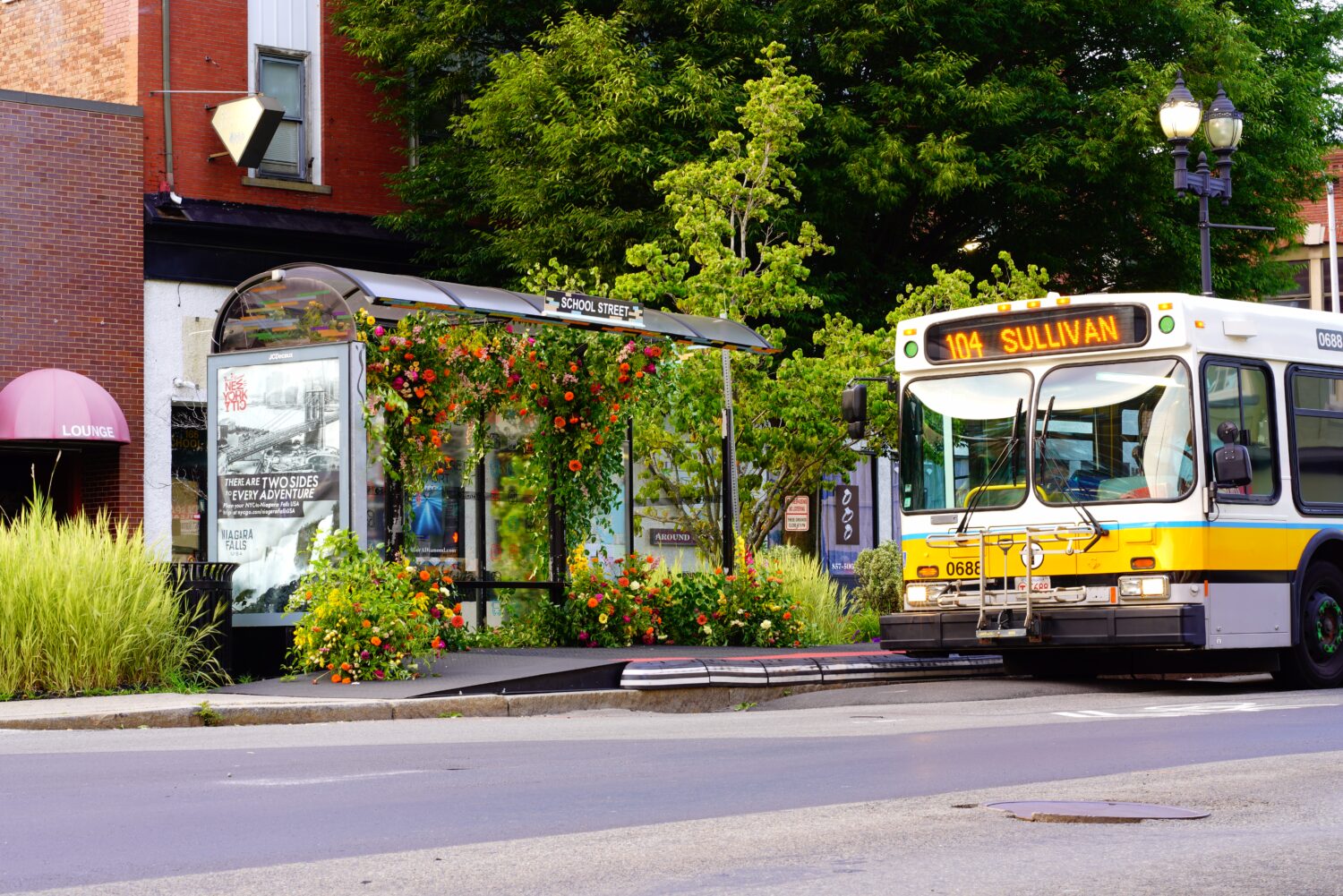What’s your question about getting around Boston in the future?
That simple question catalyzed a transportation planning process unlike any other. Go Boston 2030, a citywide plan, is focused on producing transformative policies and projects that will reshape urban mobility over the next 15 years. Since January 2015, the process has focused on building a dialogue between the City and the wide range of people who rely on its sidewalk, streets, and transit to get where they need to go.
With support from the Barr Foundation (Mary Skelton Roberts wrote about the launch of the program last year), the Boston Transportation Department has worked with the Interaction Institute for Social Change to engage Boston’s residents, workers, and visitors in developing a Vision Framework and an Action Plan. Rather than host a series of traditional public meetings, we sought from the beginning to create interactive events and opportunities designed for people of different ages, abilities, languages, and transportation preferences to provide feedback.
The planning process kicked off in January 2015 with a Question Campaign that invited people to ask questions through an online platform where they could read and “like” ideas posted by others. People could also donate questions by visiting a Question Truck that drove to neighborhoods across the city collecting questions on cards, the truck’s windows, or Plexiglas hexagons. Participants learned about the process through email blasts, social media, and provocative advertisements posted on the T and around the city.

In order to synthesize key themes from the 5,000 questions we collected into a meaningful vision and specific goals, 60 community and interagency partners reviewed them all and worked together to select a set of provocative and representative questions. These priority questions, along with images of what the future might offer, were shared at a two-day Visioning Lab—a hands-on, museum-like forum that invited people to read and react to questions, writetheir responses on the walls, and even design their ideas of what a better transportation system might look like, using collage materials, pipe cleaners, and LEGOs. Participants also had the opportunity to engage with data visualizations of the existing conditions in Boston, attend discussions, and enjoy art and live performances related to mobility.

We organized the lab around the cross-cutting themes that came up in the question campaign: access, safety, reliability, experiential quality, innovation and technology, affordability, sustainability and resiliency, governance, and health. The just-released draft Vision Framework uses the same themes to lay out the goals and aspirational targets we will use to guide the remainder of the planning process. The vision also emphasizes that decision-making and project selection will focus on improving equity, climate responsiveness, and economic opportunity.

This fall, as Go Boston 2030 has moved into building an action plan, we are using new engagement techniques to solicit project and policy ideas. Our bicycle-powered “Ideas on the Street” trailer has already been to 31 neighborhood locations and collected ideas on paper hexagons and maps using the Vision Framework as a tool for shaping the conversation.

A mobile-friendly website also allows people to share ideas. We are also collecting insights and personal narratives about the current and future needs of residents through Share Your Trip with BTD, a program that matches Boston residents with Transportation Department staff with people who tag along on their regular, daily trips. Finally, we will soon be launching a series of Idea Roundtables, where people will have opportunities to discuss with their neighbors the kinds of mobility challenges the city may face over the next decade and a half and to develop solutions.
We are excited about the incredible level of engagement throughout this process and the progress we are making towards crafting an implementation plan to radically improve how everyone gets around Boston. The final plan will be released in spring 2016 with a five-year capital plan.
At the time this blog was published, Alice Brown worked at the Boston Transportation Department as the project manager for Go Boston 2030.
